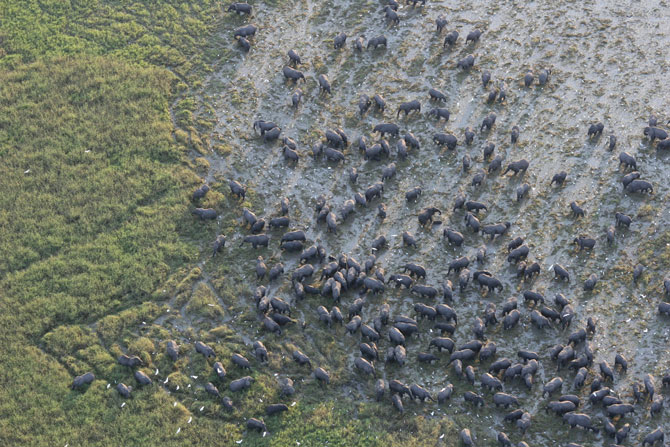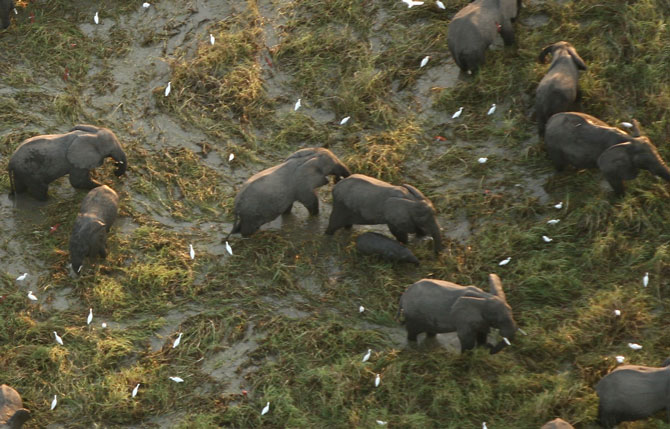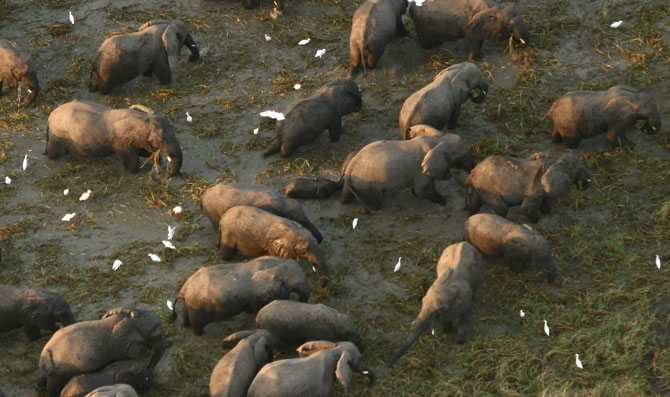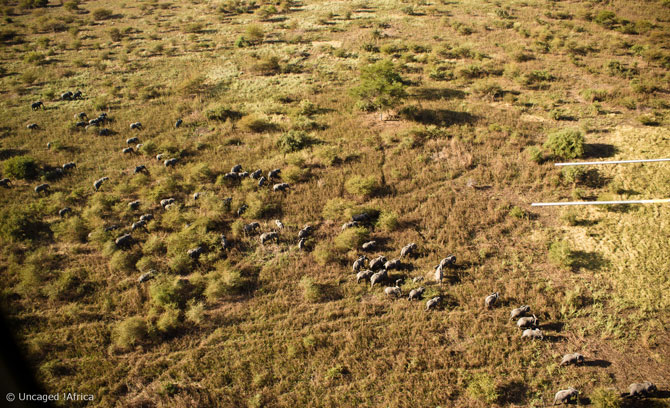Twenty-one new elephant calves have been sighted at Zakouma National Park in the Republic of Chad, marking a significant anti-poaching turnaround in the fortune of the park’s beleaguered elephant herds decimated in recent years.

The devastating poaching onslaught reduced Zakouma’s elephant population from 4 000 to 450 between 2006 and 2010, leaving the decimated herd too stressed to breed. Whilst African Parks has stabilised the elephant population since assuming management of Zakouma in 2010, only five calves were born between 2010 and 2013.
African Parks’ conservation director Dr Anthony Hall-Martin says the stress caused by the traumatic, mass killings by mounted poachers between 2005 and 2010 is the most likely reason why the surviving elephants stopped reproducing. Rian Labuschagne, Zakouma’s Park Manager, said that a lion study carried out around 2005 found that elephant calves made up an astounding 23 per cent of the diet of lions at that time. “It was a direct result of the then rampant poaching that left substantial numbers of calves orphaned and easy prey for the lions,” he said.
The flush of elephant calves sighted by Labuschagne and his team shortly before Christmas changes the status of Zakouma’s elephant population from “stable” to a “definite increase in numbers” and is testimony to the success of the intensive anti-poaching strategy implemented by African Parks since late 2010.

Anti-poaching measures have included the year-round deployment of patrols in the extended elephant range, aerial support for patrols along with the construction of eight regional airstrips, the fitting of satellite collars to individual elephants, establishing a park-wide radio communication system and central radio control room, increased intelligence-gathering and a reward system for information, advanced training for park guards, the establishment of a dedicated Rapid Response Unit and the deployment of specialised anti-poaching technology and equipment. As a result of these measures there has been no poaching of elephants in Zakouma for more than two years.

African Parks entered into a public-private partnership with the Chadian Government at the end of 2010 to manage Zakouma, one of the last strongholds for migratory herds of savannah elephants in the central African region. Given that the gestation period for elephants is 22 months, Zakouma’s elephants had settled down enough to start breeding within a year of African Parks assuming management of the park.
 DID YOU KNOW that African Parks offers safari camps (lodges and campsites) where 100% of tourism revenue goes to conservation and local communities? Find out more and book your African Parks safari.
DID YOU KNOW that African Parks offers safari camps (lodges and campsites) where 100% of tourism revenue goes to conservation and local communities? Find out more and book your African Parks safari.
Labuschagne concludes, “We are thrilled that Zakouma’s elephant numbers are now growing but are mindful of the continual challenges that we face. At the moment we are implementing major new anti-poaching initiatives to combat ongoing threats that now include the deteriorating situation in the Central African Republic to the south of us.”

Last year the Government of Chad launched a national programme to combat elephant poaching and protect Chad’s remaining elephant populations. This national initiative is a first for the Central African region where elephant numbers have declined by 62% in just 10 years. A National Elephant Monitoring Centre in the capital city of N’Djamena has been set up by African Parks and is run under the auspices of the Ministry of the Environment. It includes the satellite tracking of collared elephants throughout Chad.
To comment on this story: Login (or sign up) to our app here - it's a troll-free safe place 🙂.![]()






